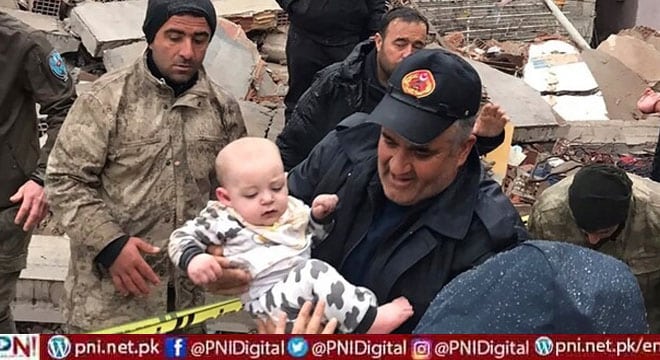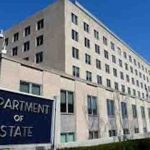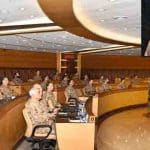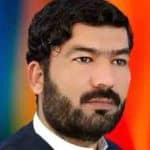SYRIA/ ANTAKYA 11 Feb (Online): Rescue crews saved a 10-day-old baby and his mother trapped in the ruins of a building in Turkey on Friday and dug several people out from other sites as President Tayyip Erdogan said authorities should have reacted faster to this week’s huge earthquake.
The confirmed death toll from the deadliest quake in the region in two decades stood at more than 23,700 across southern Turkey and northwest Syria four days after it hit.
Hundreds of thousands more people have been left homeless and short of food in bleak winter conditions and leaders in both countries have faced questions about their response.
Syrian President Bashar al-Assad made his first reported trip to affected areas since the quake, visiting a hospital in Aleppo with his wife Asma, state media reported.
His government also approved humanitarian aid deliveries across the frontlines of the country’s 12-year civil war, a move that could speed up the arrival of help for millions of desperate people. The World Food Programme said earlier it was running out of stocks in rebel-held northwest Syria as the state of war complicated relief efforts.
The earthquake, which struck in the early hours of Monday, ranks as the seventh most deadly natural disaster this century, ahead of Japan’s 2011 tremor and tsunami and approaching the 31,000 killed by a quake in neighbouring Iran in 2003.
Erdogan on Friday visited Turkey’s Adiyaman province, where he acknowledged the government’s response was not as fast as it could have been.
“Although we have the largest search and rescue team in the world right now, it is a reality that search efforts are not as fast as we wanted them to be,” he said.
He also said looting of shops had taken place in some areas.
Erdogan is standing for re-election in a vote scheduled for May 14 and his opponents have seized upon the issue to attack him. The election may now be postponed due to the disaster.
With anger simmering over delays in the delivery of aid and getting the rescue effort underway, the disaster is likely to play into the election, if it goes ahead.
Erdogan, for whom the vote was seen as going to be his toughest challenge in two decades in power even before the earthquake, has called for solidarity and condemned what he has described as “negative campaigns for political interest”.
Kemal Kilicdaroglu, head of Turkey’s main opposition party, criticised the government response.
“The earthquake was huge, but what was much bigger than the earthquake was the lack of coordination, lack of planning and incompetence,” Kilicdaroglu said in a statement.
The death toll from the 7.8 magnitude earthquake and several powerful aftershocks across both countries has surpassed the more than 17,000 killed in 1999 when a similarly powerful earthquake hit northwest Turkey.
The number of deaths in Turkey rose to 20,213 on Friday, the country’s health minister said. In Syria, more than 3,500 have been killed. Many more people remain under rubble.
Rescuers, including teams from dozens of countries, toiled night and day in the ruins of thousands of wrecked buildings to find buried survivors. In freezing temperatures, they regularly called for silence as they listened for any sound of life from mangled concrete mounds.
In the Samandag district of Turkey, rescuers crouched under concrete slabs and whispering “Inshallah” (God willing), carefully reached into the rubble and picked out a 10-day-old newborn.
His eyes wide open, baby Yagiz Ulas was wrapped in a thermal blanket and carried to a field hospital. Emergency workers also took away his mother, dazed and pale but conscious on a stretcher, video images showed.
In Diyarbakir to the east, Sebahat Varli, 32, and her son Serhat were rescued and taken to hospital on Friday morning, 100 hours after the quake. A mother and her two daughters were rescued from the rubble of an apartment block in the city of Kahramanmaras on Friday evening.
Broadcaster CNN Turk showed rescue workers carrying out the three of them in succession.
Across the border in Syria, rescuers from the White Helmets group used their hands to dig though plaster and cement until reaching the bare foot of a young girl, still wearing pink pyjamas, grimy but alive and free.
But hopes were fading that many more would be found alive.
In the Syrian town of Jandaris, Naser al-Wakaa sobbed as he sat on the pile of rubble and twisted metal that had been his family’s home, burying his face in the baby clothes that had belonged to one of his children.
“Bilal, oh Bilal,” he wailed, shouting the name of one of his dead children.
The head of Turkey’s Humanitarian Relief Foundation, Bulent Yildirim, went to Syria to see the impact there. “It was as if a missile has been dropped on every single building,” he said.
Some 24.4 million people in Syria and Turkey have been affected, according to Turkish officials and the United Nations, in an area spanning roughly 450 km (280 miles) from Adana in the west to Diyarbakir in the east. In Syria, people were killed as far south as Hama, 250 km from the epicentre.
Many people have set up shelters in supermarket car parks, mosques, roadsides or amid the ruins. Survivors are often desperate for food, water and heat.
In Syria, the aid deliveries across the frontlines agreed on Friday will take place in cooperation with the United Nations, the International Committee of the Red Cross and the Syrian Arab Red Crescent, state media said.
The United Nations had pushed for aid to flow more freely into Syria, especially into the northwest, where it estimated more than 4 million people were already in need before the quake.
Dozens of planeloads of aid have arrived in areas held by Assad’s government since Monday but little has reached the northwest.
Follow the PNI Facebook page for the latest news and updates.









